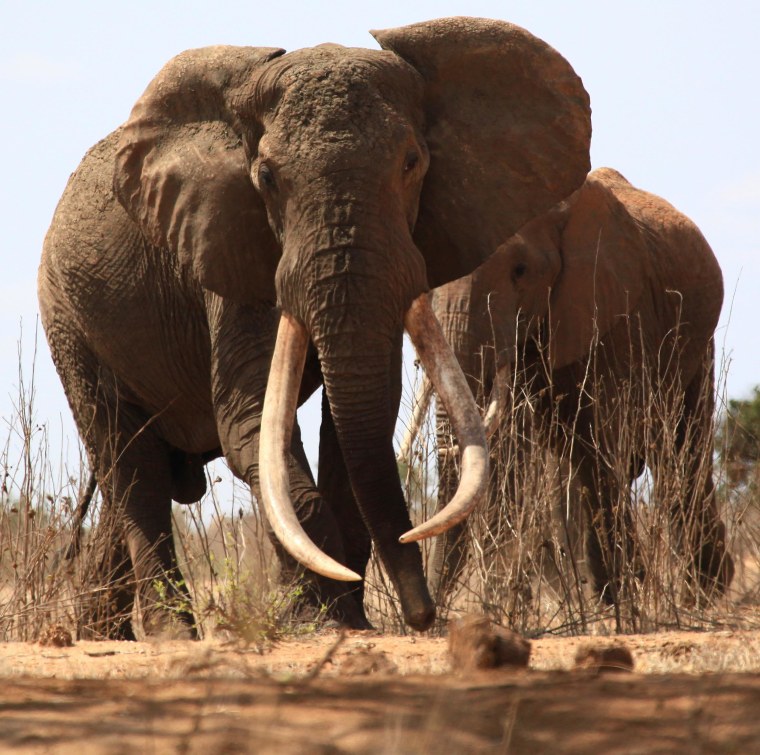An “iconic and well-loved” elephant known for his enormous tusks was shot dead with a poison arrow by poachers who mutilated his body behind the point of immediate recognition, a Kenyan conservation organization said.
Satao, who was at least 45-year-old, was one of about a dozen “tuskers” left in Tsavo, Kenya. The rare elephants can rest their 100-pound tusks on the ground while standing.
Sign up for breaking news alerts from NBC News
Conservation group, The Tsavo Trust, found Satao’s carcass on June 2, but could not verify the identity of the elephant because poachers had hacked off the animal’s trunk, tusks and face after shooting him with a poison arrow.
“Today it is with enormous regret that we confirm there is no doubt that Satao is dead,” the Tsavo Trust said in a statement Friday. “A great life lost so that someone far away can have a trinket on their mantelpiece.”
Mark Deeble, a British documentary filmmaker that spent days filming Satao, wrote on his blog that the elephant would hide his tusks out of instinct, but poachers had learned his habits and wounded him on several occasions.
“I hate the thought that poachers are now closing in on one of the world’s most iconic elephants,” Deeble wrote in March.
Deeble said he was afraid to name Satao in previous posts out of fear that poachers would deduce where he roamed — elephants are named for their locations. “Now that I can use it, I wish that that I couldn’t,” Deeble wrote on Sunday.
When Deeble’s crew flew over Satao’s body on Sunday, he said the site was ridden with elephant carcasses. “We couldn’t believe what we were seeing — it was a killing field.”
“The deaths of Satao and Mountain Bull (another iconic elephant killed just last month) are stark reminders of the ongoing elephant poaching crisis," said Leigh Henry, a Senior Policy Adviser at the World Wildlife Fund (WWF). "The killing needs to end," she said.
More than 20,000 African elephants were killed for their ivory in 2013, according to the Convention on International Trade in Endangered Species, a U.N.-linked wildlife conservation agency.
The group estimates that far more elephants are killed than are born each year.
